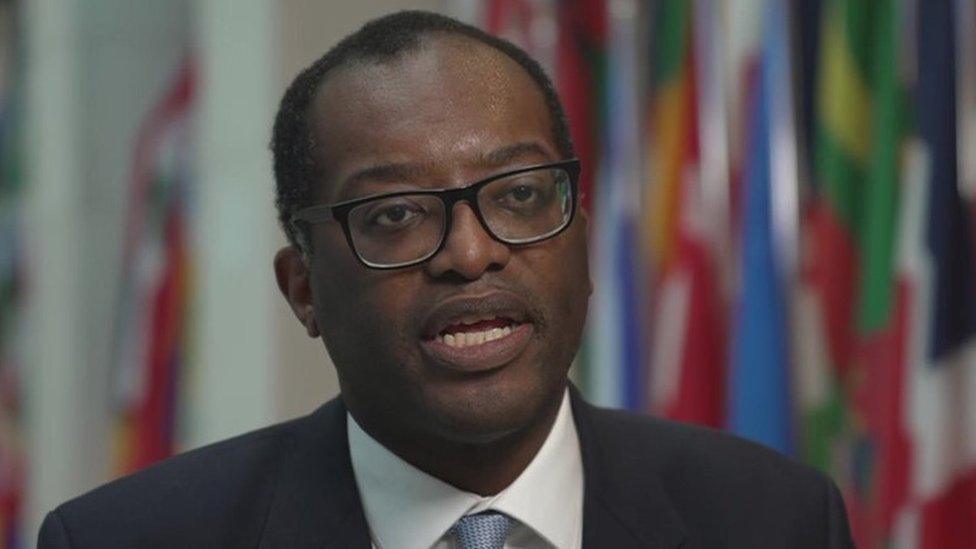Where are the other bits of the government's growth plan?
- Published
- comments

Liz Truss and Kwasi Kwarteng insist the tax cuts announced in the mini-budget will boost economic growth - but they've promised a series of other policy changes which they say will also help grow the economy.
These so-called "supply-side" reforms were intended to be across eight areas: business regulations, agriculture, housing and planning, immigration, mobile and broadband, financial services, childcare, and energy.
They were supposed to be announced in the run-up to the chancellor's next economic statement - originally scheduled for the end of November, but now brought forward to 31 October.
If they were so central to the growth plan, then where are they?
We're now expecting the first of the announcements to come next week - but not all of them will be ready by the end of the month.
The delay suggests some of the proposed changes - like loosening planning rules to encourage building, or trying to attract more foreign workers to plug gaps in the labour market - are contentious within government and the wider party, and are still being haggled over.
"Some of the areas they are looking at are very promising - in particular the area of land use," says Greg Thwaites, research director at the Resolution Foundation think tank.
"Some of the planned reforms wouldn't be game-changers in and of themselves. The point is to develop a package that adds up to something that makes a difference."
Remember what will accompany the chancellor's economic plan on Halloween is an independent assessment by the Office for Budget Responsibility (OBR) watchdog of the impact of the government's plans.
The Treasury initially said it wanted the chancellor to make his next statement in November, so the OBR would be able to take all the additional reforms into account alongside the tax cuts - and assess how much the whole package of measures would contribute to economic growth.
Now because of the time pressure, the OBR won't have the complete picture of the government's plans, although they are being presented with some policy decisions privately.
But does this mean its growth projection won't be as high as it could have been if the government had outlined all the measures it intended?
Well there's a question of how much difference to growth mooted increases in childcare ratios for example, would make.
"They didn't say anything about skills or business investment - things that would make a real difference to productivity and growth," says the Resolution Foundation's Mr Thwaites.
And he adds that the impact of the supply-side changes will probably only be felt in the longer term: "It takes time to get rules changed and it takes time for them to take effect."
The OBR is still working towards its all-important final fiscal and growth forecast, and will work with the Treasury to incorporate new information right up until a few days before the chancellor's economic statement.
A lot rests on what it comes up with.
Related topics
- Published5 October 2022

- Published13 October 2022
